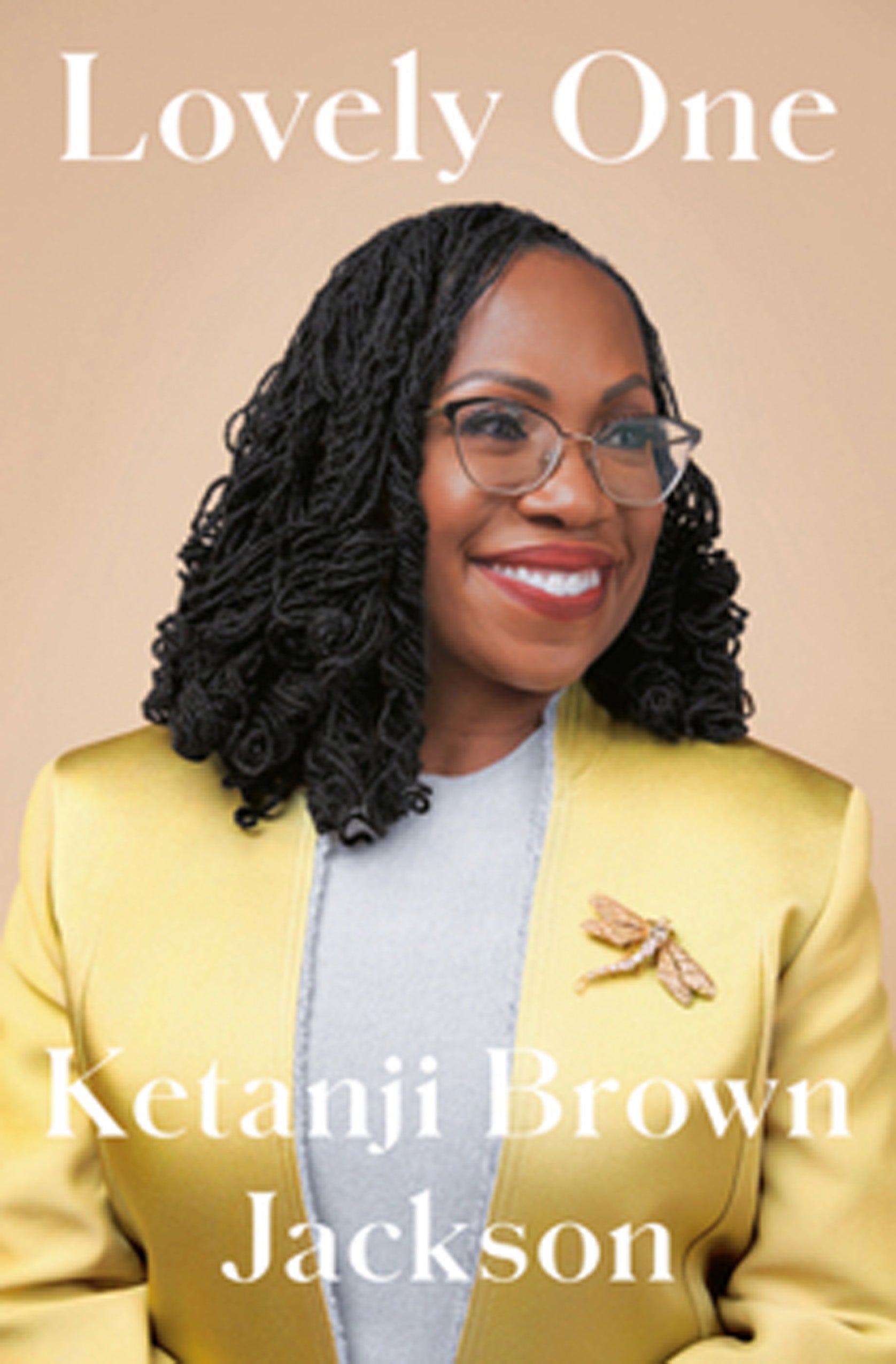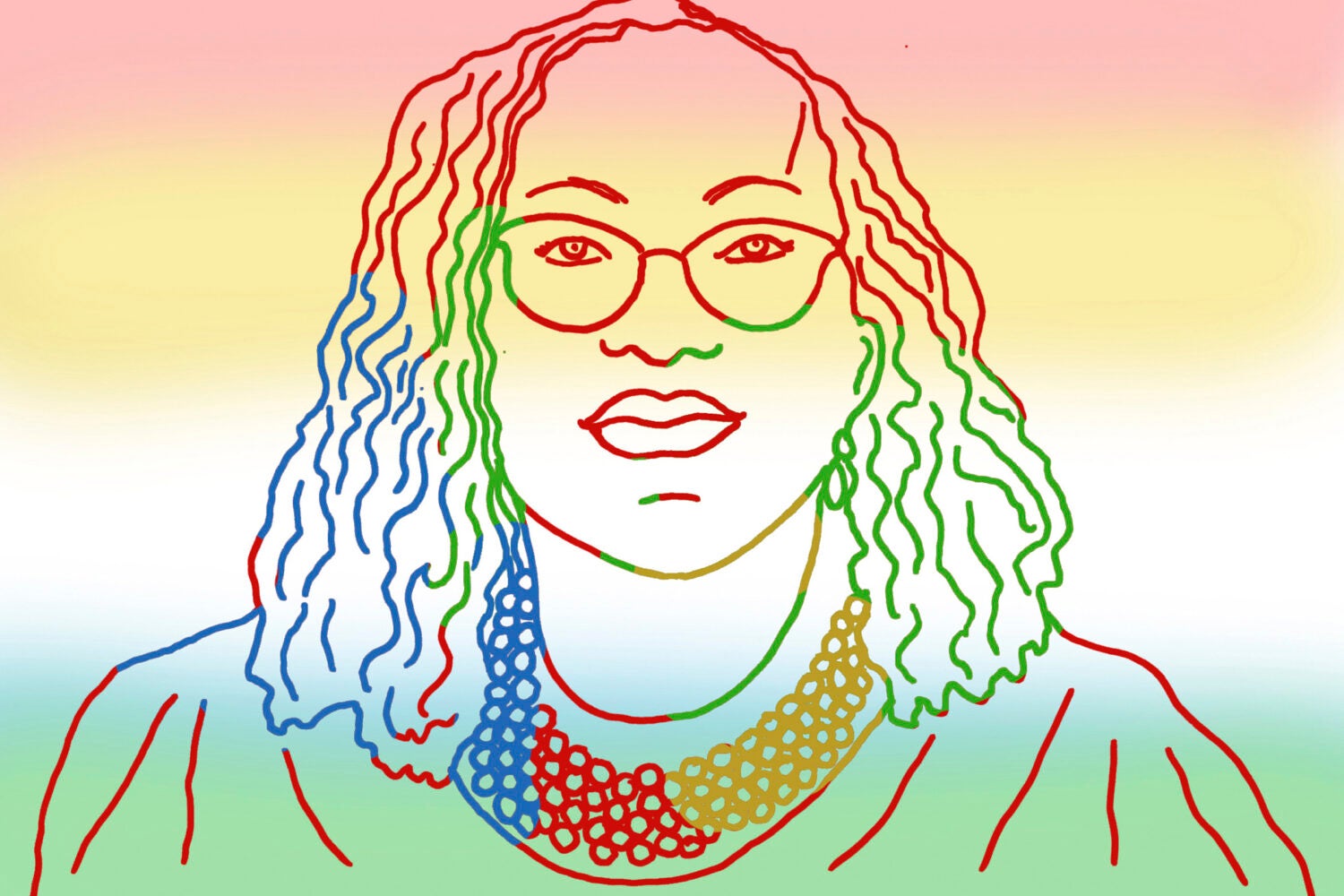
After Ketanji Brown Jackson ’96 was sworn in as an associate justice of the United States Supreme Court on June 30, 2022, many people asked her how someone from her background reached the highest court in the land, the first Black woman to do so. She tells that story in her memoir, “Lovely One,” beginning with her early childhood through her work as a lawyer and a judge.
She first aspired to be a lawyer when she was only 4 years old, inspired by her father, one of the few Black students at the University of Miami’s law school. He’d sit with her at the kitchen table while he was studying and talk to her about legal cases. Much later, she writes, she would learn “how profoundly the law had defined and circumscribed my people’s very existence on American soil.”
Her parents, who came of age before the civil rights era, instilled in her pride in her African heritage and hope for a better future. The title of her book is a translation of her given name, Ketanji Onyika, chosen by her parents from a list of African names Jackson’s aunt, then living in West Africa, sent them.
Her parents also emphasized the value of education, and Jackson recounts her path to Harvard Law as an ambitious and high-achieving student. Reflecting on her law school experience, Jackson extols her time on the Harvard Law Review, which she has commemorated by hanging in her chambers framed copies of Review group portraits in which she appears.
After graduating, during a clerkship that forced her to live apart from her husband, Patrick, then a physician-in-training, there were moments when she questioned pursuing the law. Yet, despite her doubts, or perhaps because of them, she persevered. “At that point, though my professional path seemed difficult, lonely, and painfully unresolved,” she writes, “I vowed to hone my chosen craft and use it to do whatever good I could along the way.”
Later, while working at a firm in Washington, D.C., Jackson received a call from one of her professors at Harvard Law, who encouraged her to apply for a clerkship with Justice Stephen Breyer ’64. She served as his clerk during the term starting in October 1999. More than two decades later, after he stepped down, and she “step[ped] up in his place,” she praises him as a mentor and jurist whose “unwavering trust in principles of law would always steer me true.”
Jackson writes frankly about her choice to leave the partner track at a law firm, finding the expectations untenable as a new parent. She also addresses the challenges of parenting with a spouse with a demanding career and of raising a neurodivergent child. In order to balance the needs of her family, she embarked on an “odyssey as a professional vagabond,” broadening her legal skills in positions including one with the United States Sentencing Commission and another as a federal public defender.
Achieving her long-held dream of becoming a judge after President Barack Obama ’91 nominated her to the D.C. district court in 2012, she details several “politically charged” cases she handled there. The book culminates with her reflections upon taking a seat on the nation’s highest court after a brief stint on the court of appeals. Jackson cites Judge Constance Baker Motley as a role model who helped her see the promise of America after “feeling utterly invisible” growing up in the country as a young Black girl. Now, she hopes she too can inspire young people today.
